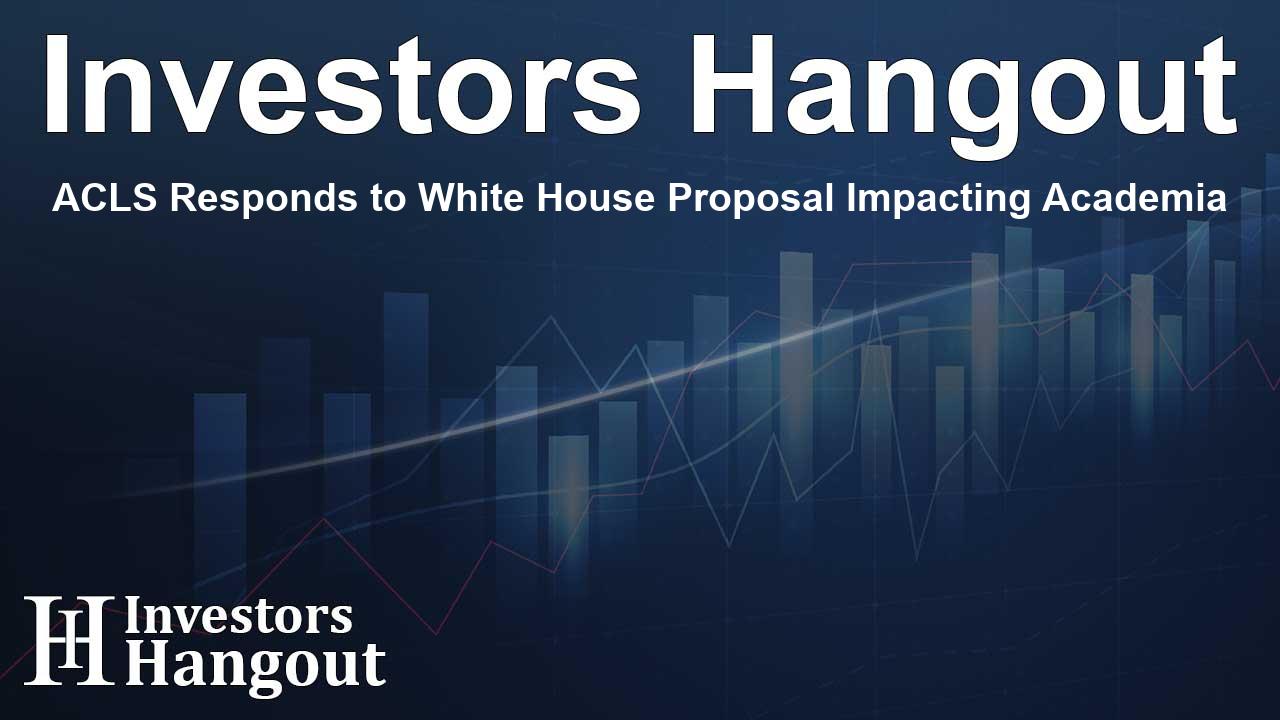ACLS Responds to White House Proposal Impacting Academia

ACLS Speaks Out Against Recent White House Proposal
The American Council of Learned Societies (ACLS) has openly addressed its concerns regarding the recent proposal titled 'Compact for Academic Excellence in Higher Education.' This initiative, proposed by the White House, suggests that select universities should meet specific conditions to gain favorable access to substantial research funding. The implications of this proposal are vast, as they seek to influence the autonomy of American higher education institutions.
The Compromise of Academic Independence
On October 1, a significant announcement was made that called into question the independence of academic institutions. The proposed compact has the potential to undermine the very foundation of American academia. The ACLS firmly believes that this approach jeopardizes not only the institutions involved but also dilutes the quality of knowledge generated by them. They are urging all higher education entities to reject this compact immediately.
Preserving the Mission of Higher Education
The core mission of universities and colleges across the nation is to promote knowledge and encourage scholarly inquiry. Professors and educators fulfill this mission through rigorous research and teaching practices. Knowledge that is developed within these institutions undergoes thorough independent assessments by peers which is critical for academic integrity. Interference from governmental bodies, under the guise of addressing campus culture problems, is not only alarming but presents a serious threat to academic freedom.
The Risks of Political Censorship
When a government imposing ideological biases attempts to influence academic conducts, it echoes tactics utilized by authoritarian regimes. The current White House administration's stance, which attempts to reframe their proposal as beneficial, is misleading. By creating a narrative that promotes political agreement as necessary for public funding, it effectively serves as a form of censorship. Such actions are fundamentally anti-democratic and dilute the value of academic expertise.
Advocating for Scholarship Across Disciplines
The ACLS strongly opposes the current proposal, which discriminates against humanities and social sciences by favoring particular fields. The assertion that programs should dismantle 'units that belittle conservative views' does not account for the historical contributions of humanists and social scientists to civil rights and ethics. The organization believes that the strength of STEM fields is enriched by humanistic approaches, and this interconnectedness should be celebrated, not diminished.
Understanding the Consequences of Compliance
The White House's proposition presents universities with a troubling choice: to either sacrifice academic integrity for funding or to become extensions of federal governance. This kind of pressure may lead university leaders to make hasty decisions which could have long-lasting negative effects. The ACLS urges all higher education institutions to recognize the dangers hidden beneath the administration's rhetoric and to uphold their commitment to knowledge and freedom.
ACLS's Commitment to Advancing Knowledge
Established over a century ago, the American Council of Learned Societies (ACLS) operates as a prominent nonprofit federation comprising numerous scholarly organizations. In its role as a representative of American scholarship in the humanities and social sciences, ACLS champions the view that knowledge should be regarded as a public good. The organization continuously supports its member bodies, promoting diverse identities and experiences within scholarly discourse.
By cultivating partnerships with various entities, ACLS aims to enrich the infrastructure supporting scholarship across disciplines. The defense of academic freedom and the promotion of independent inquiry are at the core of ACLS’s mission, ensuring that scholarly pursuits continue to thrive without the influence of external pressures.
Frequently Asked Questions
What is the main concern of the ACLS regarding the proposal?
The ACLS is concerned that the proposal undermines academic independence and imposes political constraints on scholarly research.
How does the ACLS view the relationship between humanities and STEM fields?
The ACLS believes that humanities and social sciences enrich STEM disciplines, and both are essential to fostering a well-rounded academic environment.
What does the ACLS urge higher education institutions to do?
The ACLS urges these institutions to reject the proposal and protect academic freedom and autonomy in their operations.
When was ACLS founded and what is its purpose?
ACLS was formed over a century ago to support and advance scholarship in the humanities and social sciences as a public good.
How does the ACLS collaborate with its members?
ACLS collaborates with organizations and individuals to strengthen the academic infrastructure and promote diversity in scholarly pursuits.
About The Author
Contact Thomas Cooper privately here. Or send an email with ATTN: Thomas Cooper as the subject to contact@investorshangout.com.
About Investors Hangout
Investors Hangout is a leading online stock forum for financial discussion and learning, offering a wide range of free tools and resources. It draws in traders of all levels, who exchange market knowledge, investigate trading tactics, and keep an eye on industry developments in real time. Featuring financial articles, stock message boards, quotes, charts, company profiles, and live news updates. Through cooperative learning and a wealth of informational resources, it helps users from novices creating their first portfolios to experts honing their techniques. Join Investors Hangout today: https://investorshangout.com/
The content of this article is based on factual, publicly available information and does not represent legal, financial, or investment advice. Investors Hangout does not offer financial advice, and the author is not a licensed financial advisor. Consult a qualified advisor before making any financial or investment decisions based on this article. This article should not be considered advice to purchase, sell, or hold any securities or other investments. If any of the material provided here is inaccurate, please contact us for corrections.
